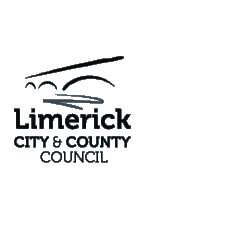“Small towns can be havens in a fast world, places whose inhabitants think globally but act locally.”
In Europe as a whole, small towns are home to one fifth of the population. Beyond the broad metropolitan core region bounded by London, Milan, and Berlin – and as is the case in Ireland – the figure is often closer to one-third. The majority of Ireland’s small towns were established as traditional market towns. They have long remained small in size because they were bypassed by the transportation systems and agglomeration economies of the industrial era. Unable to remain competitive in the face of changing technologies and the logic of scale and agglomeration associated with the industrial economies of the twentieth century, or with the changing international division of labour associated with the globalisation of the twenty- first century, many market towns have experienced decades of economic and demographic stagnation. Outmigration has typically accounted for a disproportionate share of the brightest, most energetic, and best-educated young people, leaving aging populations that tend to become provincial and parochial in outlook, lacking in vision and leadership. With declining economies and limited capacity to manage change, problems of economic, social and environmental problems become chronic. Overshadowed by Dublin, Cork, Limerick, Galway, and Waterford, and with their identity and distinctive sense of place under threat by the globalisation of consumer culture, market towns are vulnerable to decline both in their social and built structure.
Yet small towns can be extraordinary places, with their own identity and a sociable and enjoyable way of life for their inhabitants. We live both in and through places, and the scale of traditional market towns offers plenty of opportunities for informal, casual meetings and gossip; friendly bars and pubs and a variety of settings in which to purchase and/or consume food; street markets; a variety of comfortable places to sit, wait, and people-watch; a sense of ease with changing seasons; and, above all, a sense of belonging, affection, hospitality, vitality, and historical and cultural continuity. They can be havens in a fast world, places whose inhabitants think globally but act locally.
In recent decades, the relatively inexpensive land and cheap, non-union labour in small towns has attracted inward investment that has resulted in new jobs, albeit in branch plants and back-office operations. Improvements in transport, communication and service infrastructure have also made some towns significantly more attractive to incomers. Altogether, small towns play an important role in regional and national urban systems throughout Europe. The population growth rate of small and medium-sized towns in Western Europe now matches that of large cities, while less urbanised regions have been able to catch up with and even outperform many of Europe’s metropolitan regions in economic terms. Small towns in many parts of the world still face challenges of economic, cultural and environmental sustainability. In recent years these issues have begun to be recognised by research and urban planning practice. In Germany, for example, the Federal Institute for Research on Building, Urban Affairs and Regional Development published research on the role of small and medium sized towns that notes their importance in the country’s interdependent, polycentric urban system. At the European level, recent work indicates that small and medium sized towns are quite heterogeneous and that place-based approaches to their development primarily require detailed analysis but also sensitivity to differences. While developed countries are starting to realise the value and uniqueness of small towns, in developing countries (Africa, Latin America, Asia), small towns are just starting to be recognised as places that may be able to take off the pressure for development in the largest urban centres. However, such approaches need to be aware of the danger for small towns to fall into the trap of ‘would-be cities’ through, for example, attempts to imitate initiatives proven to work in large cities.
The most successful market towns have capitalised on the significance to people, in a globalising world, of the local dimensions of livability and quality of life. Building on local comparative advantages, local resources, local products, and local distinctiveness, they feature farmers’ markets, local foods, fair trade, slow food, and sustainability. For small towns, with few staff and little or no expertise in economic development, it can nevertheless be challenging to take advantage of these simple comparative advantages. The answer, for some, has been to join a specialised network, of which there are many including for example, the European Council for the Village and Small Town; the EU’s Sustaining Small Expanding Towns project; World Health Organisation’s European Healthy Cities network; the UK’s Action for Market Towns network; the eco-city movement; Alliance in the Alps and so on. Clonakilty, in County Cork, is a member of the Cittaslow network, arguably the most innovative and progressive of the international networks of small towns. Founded in 1999 in Italy, the Cittaslow movement has spread to 236 towns in 30 countries. It advocates local distinctiveness and sense of place; conviviality and the traditional rhythms of community life: places where pedestrians can stroll untroubled by roaring traffic and car alarms, with abundant green spaces, renewable energy and recycling schemes, vibrant local arts and crafts, traditional eating establishments that serve local cuisine and shops that sell local produce. The network has a charter with 59 different elements grouped into six different topic areas: environmental consciousness, support for local products, urban design and infrastructure, technologies and facilities for urban quality, hospitality, and commitment to the Cittaslow philosophy. Clonakilty was Ireland’s first Fair Trade town (in 2003) and has been recognised as a European Destination of Excellence. Clonakilty’s membership of the Cittaslow network is based on its cultural and natural heritage and its rich culinary history. Being known for its historic preservation efforts, Clonakilty still features a vital main street, on which big box stores and fast food chains are missing.
Clonakilty, unlike market towns that are regarded as having become dull and lifeless, has been recognised as picturesque, peaceful, and attractive for some time. A commitment to Cittaslow ideals will enhance the well-being of its residents but is not critical to its livability. The danger for Clonakilty, along with other market towns whose combination of house prices, pace of life, and physical attractiveness have drawn in retired households, teleworkers, second-home owners, is that they become ‘gentrified’, with upgraded residences, stores, cafés, and restaurants but with little of the warmth, conviviality and communality that is associated with the best of traditional market towns. For market towns that are struggling with economic decline and depopulation, organisations and movements such as Cittaslow, eco-city, and so on can provide a blueprint for reclaiming a basis for interaction and community, restoring a positive sense of place and reviving distinctive local cultural traditions. The risk here though is that an adherence to idealised approaches can be overly prescriptive and liable to devolve into competitiveness and place marketing.
Initiatives like the Cittaslow movement have long recognised the need for a bottom-up approach to preserving livability and vitality of small towns. In recent years, however, national governments have started to establish rural development programmes, which emphasize the need to address spatial disparities. Such a focus is especially important as recent elections in Great Britain, France and Ireland have shown that rural economies have dramatically changed as globalisation has benefitted the largest metropolitan areas and rural voters are expressing their opinions. In response, in 2017 the Irish Government Ireland launched Realising our Rural Potential: Action Plan for Rural Development. The aim is to support sustainable communities, support enterprise and employment in rural areas, foster culture and creativity, improve rural infrastructure and connectivity among other aspects. While the plan focuses largely on job creation, it also has a focus on encouraging people to return to their town or village. Such efforts on behalf of national governments are important, since place competition encourages the concentration of economic activities in urban centers and leaves behind places that are more peripheral. Yet, small towns in rural and peripheral areas need to be supported in order to become attractive again to those who have left them and who are still attached to their home region.
Paul Knox is University Distinguished Professor and Dean of the Honors College at Virginia Tech. A former Dean of Architecture and Urban Studies at Virginia Tech, his research is on the political economy of the built environment.
Heike Mayer is professor of economic geography in the Institute of Geography and a member of the Center for Regional Economic Development (CRED) at the University of Bern in Switzerland. She is also affiliated with the Global Forum on Urban and Regional Resilience at Virginia Tech in the United States. Her research is in local and regional economic development with a particular focus on dynamics of innovation and entrepreneurship, place making and sustainability.






















